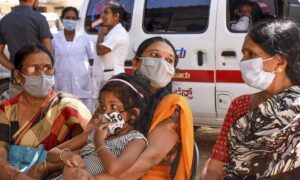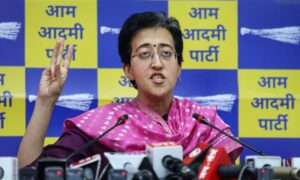Guatemala City [Guatemala]: Bernardo Arévalo, progressive Movimiento Semilla party candidate appeared to have won Guatemala’s presidential election on Sunday (local time), CNN reported.
With over 95 per cent of the ballots counted, Arévalo received 59.1 per cent of the votes beating former first lady Sandra Torres in a race where she garnered 36.1 per cent, according to official data from the Supreme Electoral Tribunal.
It marks a stunning win for the former diplomat who reinvigorated a race that has been plagued by controversy after the state disqualified opposition candidates who spoke out against corruption – drawing concerns from rights groups and Western allies.
The president of the electoral tribunal, Irma Palencia, said during a press conference on Sunday night that “today, the people voice’s spoke,” as it became apparent that Arévalo had won by a large margin, as per CNN.
In a post on X, formally known as Twitter, Arévalo wrote: “Long live Guatemala!”
Guatemala’s President Alejandro Giammattei congratulated Arévalo for his win in a post on X, saying he would “extend the invitation to start the ordered transition the day after the results are official.”
In the first round of voting in June, Torres received 16 per cent of the vote, while Arévalo received 11.8 per cent. However, more than 24 per cent of voters cast blank or invalid ballots, and about 40 per cent of eligible voters stayed home, which analysts have attributed to high levels of dissatisfaction with Guatemala’s electoral system after the state disqualified opposition candidates who spoke out against corruption, according to CNN.
Guatemala watchers are cautiously hopeful that the popular will might prevail.
Rights groups say graft and impunity accelerated among the country’s political class after a United Nations-backed anti-corruption commission, known as CICIG, credited for assisting in hundreds of convictions, was dissolved in 2019, CNN reported.
Prosecutors and judges associated with the commission were arrested, investigated, and many have been forced to flee the country in the ensuing years amid high rates of poverty and malnutrition.


























